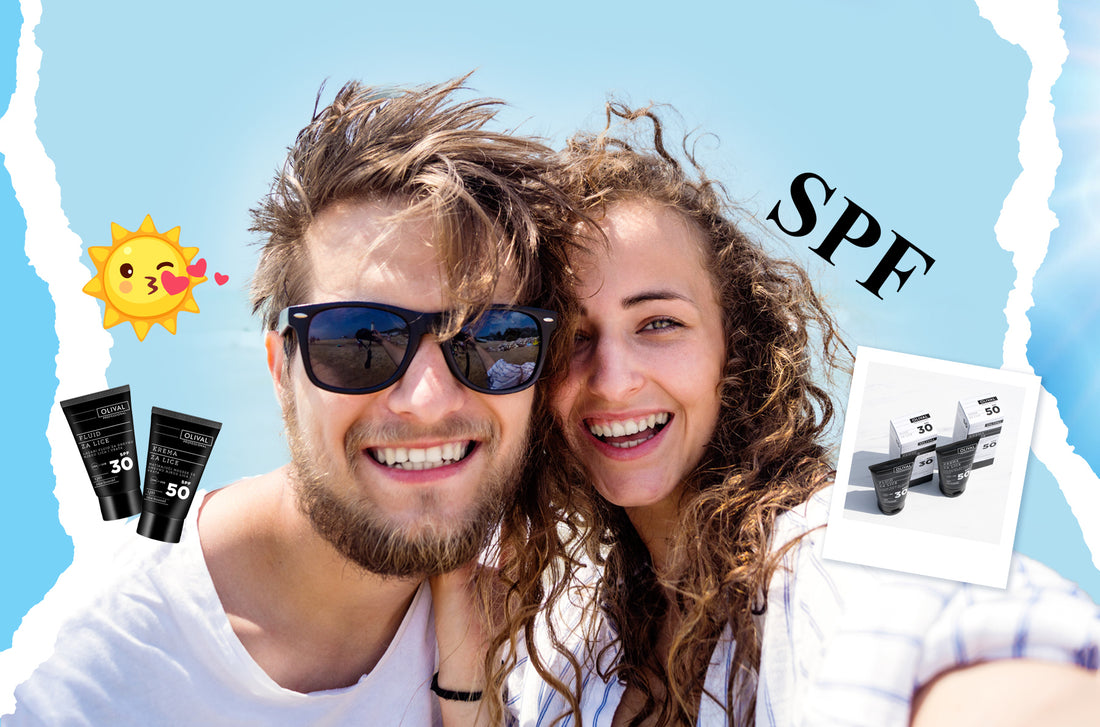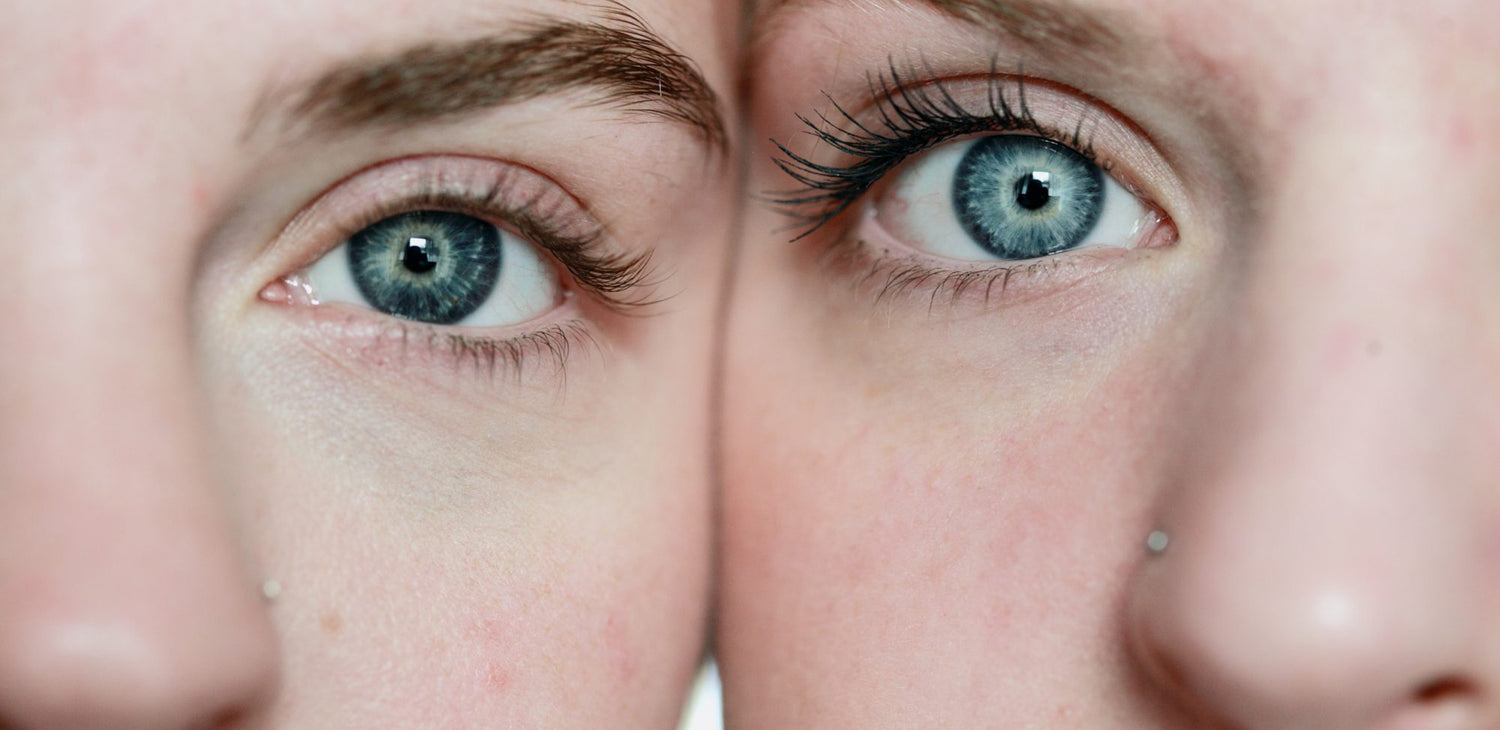Sun protection, colloquially known as SPF ( Sun Protection Factor ), is perhaps the most important product on your shelves. It protects the skin from malignant diseases, but also from signs of premature aging of the skin - loss of tone, wrinkles, lines, spots and freckles. Below we present the most important reasons why we can declare SPF the hero of daily care, as well as all the details on how to use, apply and renew it.
Products that are best known as anti-aging (although aging is a completely normal and natural process) are usually based on a whole range of sound ingredients such as retinoids, peptides, vitamin C, resveratrol. All these ingredients, in proven effective concentrations, are the basis of our Professional collection of products. However, care with such ingredients is complete only when you introduce SPF in your daily routine according to the type and condition of the skin.

The sun is the sun, on the beach and in the hustle and bustle of the city
Skin needs protection from the sun even when you are not on vacation. Damage caused by UV ( ultraviolet ) radiation is not limited to acute, dangerous and unpleasant, and primarily very visible burns, but is cumulative. The reason for this is the fact that there are UVB rays ( B=burning ) and UVA rays ( A: aging ). [1]
As long as you protect your skin from the sun with dedicated sun products in the recommended way and follow all other general protection guidelines, such as avoiding being in the sun between 10 a.m. and 4 p.m., you are protecting yourself from various forms of skin cancer that are more widespread today than ever, but do and a big step in preserving the youthful appearance of your skin.
Who needs SPF (really) 365 days a year
There are different views on whether SPF is really necessary all year round or not. The focus is usually on the protection of the face, neck and cleavage, but the same question applies to the skin of the body - at times of the year when sleeves and legs become shorter and the skin is more exposed. The ideal situation is one in which you find a dedicated SPF product that suits you in terms of absolutely all parameters, which makes it much easier to get used to daily use. The sun affects the skin not only when it's sunny, but also through the clouds, even when it's raining. UV rays, especially UVA, reach us even indoors through window panes.
What makes the decision to wear SPF easier is your personal assessment, which you can base on the UV index and the time of year, the duration of your stay outdoors, the specifics of the space you are staying in, the day itself, the sensitivity of your skin and your care routine.
If you use acids for exfoliation and/or retinoids, regularly go for any more invasive facial treatments and if the skin is extremely sensitive and reactive, prone to hyperpigmentation, SPF will probably be needed all year round. However, if, for example, you work from home and only go out in the late afternoon or evening, or you come and go to work when it's dark, and you are not exposed to sunlight in any way, SPF will not be necessary at those times. During the spring and summer, however, it most certainly will!

The ideal SPF depends on the skin type and product features
It's important to find a product that you just "click" with, so always read the manufacturer's details and instructions carefully. First of all, choose a dedicated product with a high protection factor (minimum SPF 30 is recommended), especially if it is a part of the body that is constantly exposed to the sun, such as the face. Products for the face and products for the body are very often quite different in their composition (for example, the proportion of oil), so it is good to use them according to the recommendations, on the parts of the body intended for that. Let it be a product that has a label that protects against both UVA and UVB rays at the same time, that is, it contains such a combination of UV filters. There are various sunscreen creams, milks and lotions on the market that are based exclusively on mineral (inorganic) UV filters, exclusively organic UV filters or a combination of filters.
Due to their properties, mineral UV filters are more suitable for the care of children's skin, very fair skin, sensitive and reactive skin prone to sun allergies. They are usually part of hypoallergenic and waterproof formulations such as Sun Mineral KIDS, and it is possible to recognize them by a certain white mark that is not absorbed as quickly as it is the case with organic UV filters, which again has a certain advantage - on such sensitive skin it is possible to see exactly where and in what quantity the protection was applied.

Organic UV filters are often lighter on the skin, part of texturally gentler formulations and do not leave a white mark, but certain UV filters can potentially be irritating to very sensitive skin, so mineral ones are recommended for them. However, more and more products like Professional Face Fluid SPF 30 and Face Cream SPF 50 contain highly reliable, photostable organic UV filters of the new generation in formulations enriched with additional antioxidant and nourishing ingredients, making SPF easily a part of (every)day care. Dry skin will love richer textures such as Sun Cream face cream SPF 30 , and mixed and oily mousse texture creams that at the same time excellently mattify and regulate sebum secretion during the day.
Whichever you choose, it is important to emphasize the following - the EU market is extremely strictly regulated in terms of the safety of cosmetic products that are marketed there, and great attention is paid to sun protection products. New findings are continuously monitored, and the regulations are revised accordingly, which is why there is no room for myths about the safety of SPF products. It is much more unsafe not to use SPF, especially during the summer months.
Apply SPF liberally and renew as needed
In order to achieve adequate protection according to the protection factor indicated on the package, the product must be applied in a sufficient, abundant amount. Although the research was conducted with the application of 2 mg of the product per 1 cm 2 skin, there is no concrete and precise consensus about such a quantity, since every body and face is different, and the texture of the product is also different. In general, it is good to consider that to protect the face, it is necessary to apply about ½ teaspoon of the product, and the same amount to the ears, neck and décolletage. Each area of the body (arms, stomach, legs, back) should be smeared with a minimum of 1 tablespoon of the product. According to the World Health Organization, approximately 35 ml of protective product should be applied to the entire body surface of an adult in order to achieve the stated SPF, and one tube should be used in three applications. [2]
SPF should be applied at least 15 minutes before sun exposure. It is used exclusively in the morning, after tonic, serum (as the last step of care) and before makeup (regardless of whether it contains SPF!) . Make-up should be applied with caution, only when the product has been completely absorbed, without rubbing or similar movements on the skin.

Does SPF need to be renewed? Again, the answer depends on the situation and all the factors, but in most situations the answer is an absolute yes. If you are staying at the beach, SPF needs to be renewed in the full recommended amount at least every 2 hours or after every time you bathe, wipe, lie down and sweat. If the skin is sensitive or you continue to use acid and retinoid care during the summer, it is recommended to renew the SPF during the day, at least in places where its application is likely to be damaged (e.g. on the chin where we lean or on the nose where we wear a mask in public transport). . If you don't wear make-up, add a little product and massage, and in case there is make-up on your face, the protection can be renewed with a protective spray. Enjoy the sun safe and protected!
---------------------------------------------
[1] Skin Cancer Foundation. UV Radiation & Your Skin. June 2019. https://www.skincancer.org/risk-factors/uv-radiation/#:~:text=Ultraviolet%20A%20(UVA)%20has%20a,is%20associated%20with%20skin%20burning . accessed 4/30/2021.
[2] World Health Organisation. Radiation: Protecting against skin cancer. 16 October 2017. https://www.who.int/news-room/qa-detail/radiation-protecting-against-skin-cancer accessed 30.4.2021.


